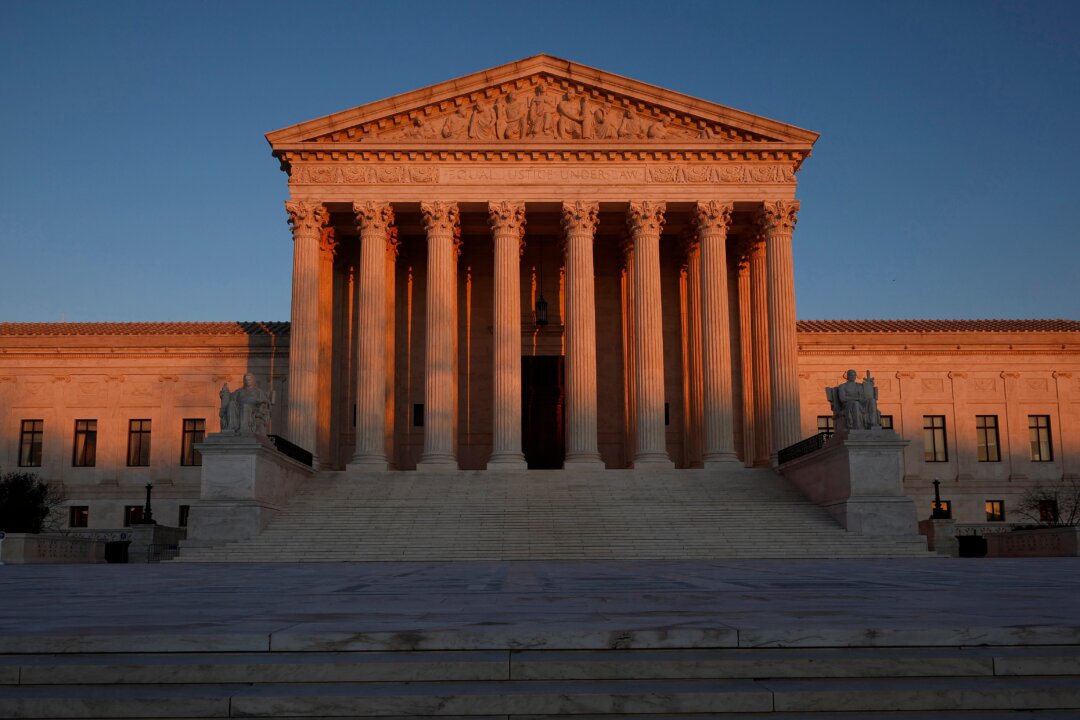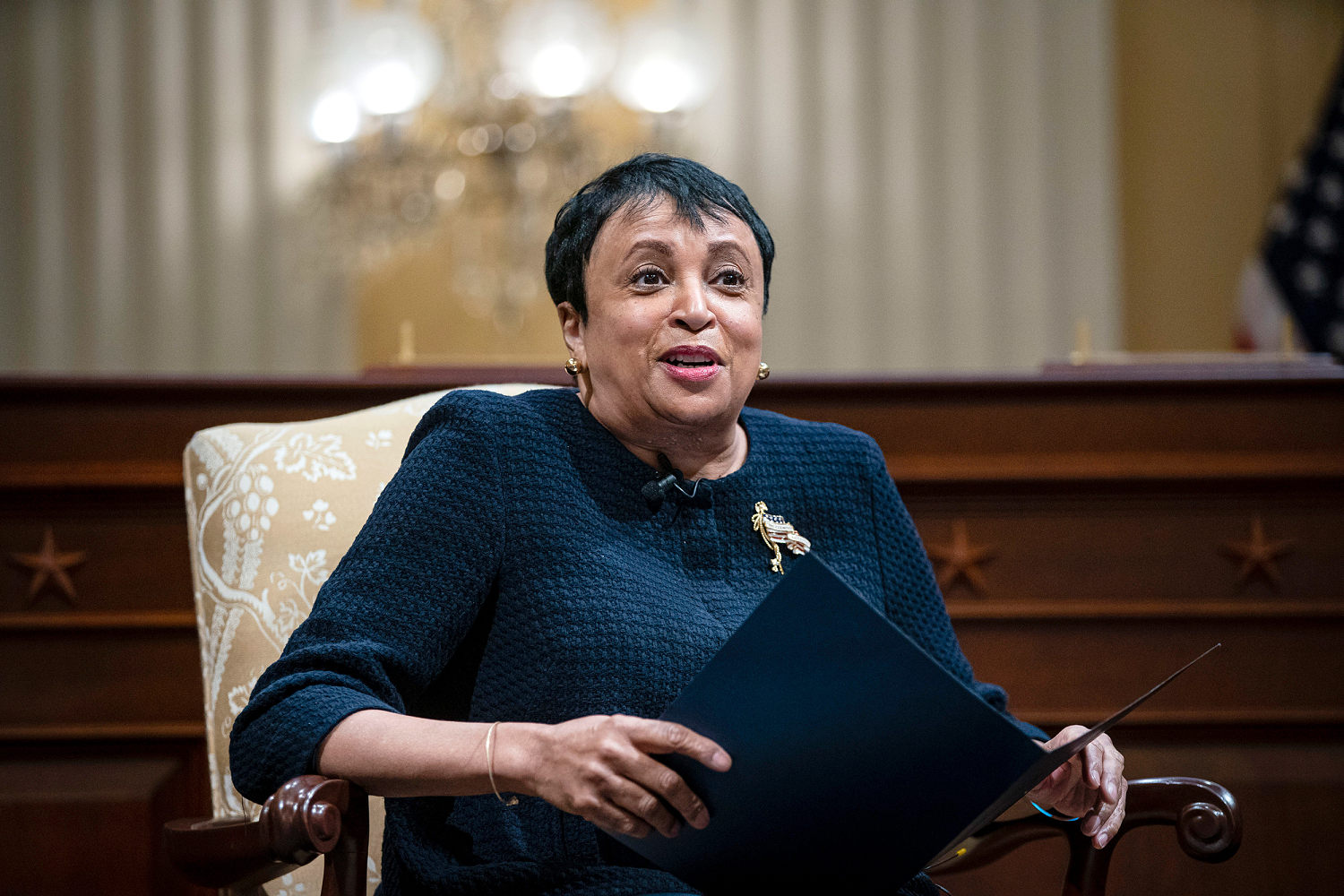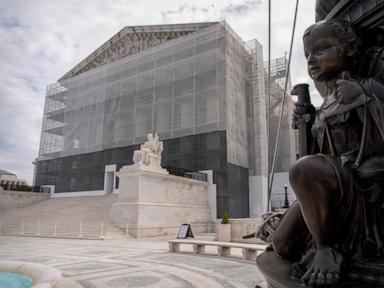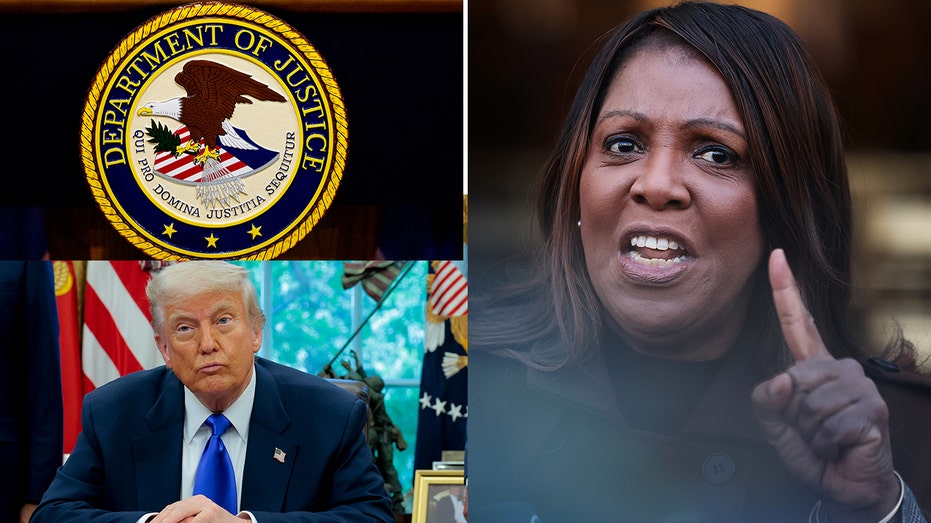On Thursday, the Supreme Court takes up a deceptively simple legal question that happens to be one of the most consequential of the second Trump era so far: Can district court judges block executive actions throughout the whole country?
The use of so-called nationwide injunctions has been controversial within legal circles for years, but President Donald Trump’s second term has brought the practice to the forefront of American politics. Many of the administration’s signature initiatives have been blocked or temporarily put on hold as a result of nationwide injunctions, and Trump officials have expressed outrage and indignation at the notion that lower court judges can stymie their work — despite the fact that Trump and White House officials like Stephen Miller often sought or championed such injunctions against the Biden administration.
The oral arguments were prompted by a series of injunctions blocking Trump’s move to end birthright citizenship, though it is unclear whether or to what extent the justices will address the underlying merits of the executive order, which have been roundly rejected by every court and virtually every independent analyst that has considered the matter.
Partisan politics aside, the legal question about injunctions is a legitimately tricky one — even among experts with similar political outlooks.
To hash out this debate, we’ve convened two experts — both liberals, and both ardent opponents of Trump’s political program — who sharply disagree about nationwide injunctions. (The term, as we discuss, is a slight misnomer; the key legal question is whether courts can grant “relief” that applies to parties who are not litigating before them.)
Amanda Frost, a law professor at the University of Virginia, has written extensively in defense of nationwide injunctions and views them as both legally sound and politically essential in our current political moment. She views the birthright citizenship order as particularly egregious and particularly appropriate for a nationwide block. “Frankly,” she said during our discussion, “the Trump administration is making my point for me.”
Nicholas Bagley, a law professor at the University of Michigan, shares the disdain for the birthright citizenship order, but he has written and spoken for years against the practice of issuing nationwide injunctions; he views them as a constitutionally suspect remedy that has further politicized the judiciary, and he is sticking to his principles.
“I would love this birthright citizenship [executive order] to be blown up into about a billion pieces. It is a moral, ethical, legal, constitutional travesty,” he said. “I don’t know that the engine to do that is a nationwide injunction. In fact, I’m pretty sure it’s not.”
This conversation has been edited for length and clarity.
Before we get into the specifics, how significant do you think this oral argument is, and which justices will you be paying most attention to on Thursday?
Frost: The fact that they asked for oral arguments is significant.
If this was the kind of case in which argument was the norm, I would not have thought this was necessarily going to be a terribly weighty analysis of this question. They’ve had it in front of them before and have chosen not, as a group, to opine, although there have been [opinions in which individual justices have commented].
The fact that they granted oral argument suggests that they’re taking nationwide injunctions and, perhaps, birthright citizenship too, very seriously.
In terms of who I’m watching for, it’s all the folks who have not yet gone on the record as being opposed to nationwide injunctions.
Who are those people?
Frost: Really everybody but [Justice Neil] Gorsuch, [Justice Samuel] Alito and [Justice Clarence] Thomas.
I’m interested to hear their views, too, but Ketanji Brown Jackson said in Poe vs. Labrador that this is a complicated question we have to think hard about. I’ll definitely be interested to hear what she has to say and what her thoughts are on this.
Professor Bagley, same questions for you.
Bagley: I think Professor Frost nailed it. The fact that they are scheduling oral argument on a stay application is sufficiently unusual that I think you should go in with a strong presumption that they want to do something.
Now, what exactly that something is, I think, is a much harder question.
There are really two broad paths that are likely. They could either vote to close the door on nationwide injunctions altogether, which is to say that they are never allowed under any circumstances, and relief can only flow to the parties in the case, not non-parties.
The alternative is for them to say nationwide injunctions are disfavored — they ought to be issued only rarely. But then they have to hum a bar about which cases ought to qualify for them. And it’s much harder to articulate a defensible standard that they’re going to be attracted to.
In terms of who I’m watching, I would say it’s, like many of these cases, the three central justices who probably hold the balance here: Chief [Justice John Roberts], who’s not written about this, Justice [Brett] Kavanaugh and Justice [Amy Coney] Barrett.
We’re all going to be watching them pretty carefully.
The model of a court proceeding for the average American is probably a group of parties litigating a dispute, leading to some sort of resolution that binds the parties to the case — the people, organizations or government entities involved.
The idea that a single district court judge might be able to resolve a challenge against the government in a manner that applies to everyone throughout the country probably strikes many people as counterintuitive.
As a constitutional matter, what is the best case for the nationwide injunction?
Frost: I think courts have constitutional authority to issue injunctions that bind everyone.
I’ll say here, as an aside, the term “nationwide” is a bit misleading. I think we all agree that a judge can issue an order that applies across the nation, binding Party B to the ruling if Party A wins. The question is really about binding a party from taking action against non-parties, wherever they may be.
I think the Constitution allows for this. I’m not an originalist, but I will say, certainly historically, courts have had the authority in traditional equity to grant remedies to non-parties.
In addition, the Constitution says federal courts have the authority to issue rulings in cases or controversies. These are certainly cases or controversies, we all agree. Then, the question is, what kind of relief?
Well, sometimes you need to give nationwide injunctions to give complete relief because a party to the case will not be able to get that relief without a nationwide injunction. That’s true of a school desegregation case. If a single Black child sues to integrate a school or attend an integrated school, it’s no remedy to say no other Black child can attend and only you, the plaintiff, get to attend that school.
Same for cases involving redistricting based on race, and same here in the birthright citizenship litigation, where the associational plaintiffs say they cannot get complete relief without a nationwide injunction. That’s a very traditional role of courts — to give complete relief to a party with standing — and that’s essential in many of these cases with nationwide injunctions at issue.
Final piece: There’s lots of examples of similar types of relief that courts give to parties who are not before them.
Absent class members get relief in class actions.
We see parties for whom the dispute has become moot, but might be capable of repetition, getting the ability to win judgments despite not currently being injured.
We see prophylactic remedies in constitutional cases where the court goes beyond what the injury is at the very moment to protect that party going forward.
And associational standing [the ability of organizations with members to sue on behalf of all of their members] is a final example of granting relief to an association.
So, if you can’t give nationwide injunctions, I guess you can’t do all those other remedies either. My point is, they’re all constitutional.
If you wanted to locate this power in the text of the Constitution, where would you point?
Frost: The text that [judges] can decide cases or controversies, right? That’s the textual hook.
But I’ll also point to the structure of our government and our system of checks and balances that requires the courts be able to check the power of the executive branch. I think that’s particularly essential.
Professor Bagley, you see things very differently. Your position, as I understand it, is that district courts lack this power as a fundamental matter of constitutional law.
Bagley: I would frame it slightly differently.
Professor Frost makes a bunch of important points about the scope of relief that judges have traditionally been able to enter, both when it comes to providing complete relief to plaintiffs and to certain represented parties in the court who are absent.
If you think about a class action in many cases, you do see courts exercising quite sweeping authority, and certainly in cases like the school desegregation case that Professor Frost brought up, that’s the kind of classic case where equitable relief is necessarily going to extend beyond the party because you can’t give relief to that party without extending it beyond to benefit others.
Nationwide injunctions, when they’re most controversial, are those injunctions that are entered where it’s not necessary to provide complete relief to the plaintiffs.
So, here I may disagree with Professor Frost about whether in the birthright citizenship case, for example, it is necessary to extend the injunction beyond the parties to the case in order to supply them with complete relief.
The parties here are states and some NGOs filing on behalf of their members. You can provide complete relief to all those various parties without necessarily extending the injunction nationwide, and that’s really the nub of the dispute.
In terms of what the Constitution says about that, I’m actually in alignment with Professor Frost. The Constitution just doesn’t have a lot to say one way or the other about it. Which is to say, the question ought to reside with Congress.
I haven’t seen good evidence that Congress intended to confer this authority on the district courts.
The authority to enter nationwide injunctions derives, believe it or not, from the 1789 Judiciary Act and its conferral of equity authority on the courts. The question is, what does it mean to confer equitable powers on the courts? It’s a kind of a loose term, and there’s good reason to think that equity confined relief to the parties before the court, absent use of a special procedure called the bill of peace.
Now, does that tell you Congress couldn’t change matters, if it wished to? I think that’s an open question, but I think what you can say for sure is that the traditional [role] of the courts has been to resolve disputes between parties — not to legislate or make a rule for people who are not appearing before the court.
Against that backdrop, I think we should carefully interrogate what it is that Congress has adopted to make sure that it intended to deviate from that traditional posture. And I don’t see evidence that Congress meant to do it.
I don’t think it’s essential to the proper functioning of our democracy. If it were, I think we’d have been in trouble for the first 200 years or so, before these were extremely common.
I think we’d be better off not having them, but I don’t think that’s a hard-edged constitutional argument. I think the Constitution helps you resolve hard cases and helps establish a [backdrop] against which we should evaluate congressional legislation.
Let’s turn to some of the policy arguments.
Professor Frost, let’s start with forum-shopping — the idea that nationwide injunctions incentivize groups aligned with the Democratic Party to go to courts where they think the judges will be sympathetic during Republican administrations, and vice versa.
One of the more notorious examples is conservative Judge Matthew Kacsmaryk in Texas, who issued a nationwide preliminary injunction essentially halting the distribution of the abortion pill mifepristone in 2023. That injunction was lifted by the Supreme Court the following year.
Many people on the left were outraged at the time. Now the shoe is on the other foot, since we’ve switched parties in power.
Why wouldn’t it be better if we just ended this cycle in some capacity? Just take this tool off the table and let everyone revert to other, less controversial methods of resolving these cases.
Frost: I’ll answer the question, but Professor Bagley, you mentioned in your response that the plaintiff associations in these birthright citizenship cases could get complete relief without a nationwide injunction.
I mean this in the most friendly fashion: How? How would they, practically and logistically?
Bagley: I think it’s a really core and important conceptual point.
Let’s take it out of the context of birthright citizenship and turn down the heat a little bit. In California, there was a lawsuit challenging its helmet law. The law was found to be unconstitutional, and the California Highway Patrol then had a question about how it would go about enforcing that.
You could have said, “Well, what you need is a nationwide injunction.” In fact, the Ninth Circuit said you need a statewide injunction because the only way that any given random motorcyclist, who might be a member of the group that sued, can be protected from getting pulled over and ticketed is if we enjoin the state authorities.
But that’s false. What you can do is give an injunction only to the parties and members of this particular group, then you leave it to state officials to decide how they’re going to comply.
Now, as a practical matter, it may be very difficult or even impossible to avoid tripping the injunction, except by extending it as a blanket matter. But that’s up to the state authorities to decide. If they choose to be a little less risk averse and accidentally pull somebody over, then you can hold them in contempt and take them back to court.
In other words, you don’t need a nationwide injunction that extends to non-parties. You can ask the executive branch officials to take action to protect the parties. Sometimes, in cases where relief is very difficult to disaggregate, executive branch officials will choose to apply the policy on a statewide or a nationwide basis.
The birthright citizenship case scrambles our intuitions about this because what we have is a Trump administration that is exceeding and breaking all norms, and where the presumption of regularity — where you assume they’re going to try to do right — has been shredded.
The question then becomes, what do you do about that?
One answer is they’re misbehaving, and so we ought to license courts to engage in their own kind of — what I would regard as — misbehavior. I think it’s a terrible way to do constitutional law over the long term, and I think it’s going to come back and harm the Republic.
I don’t think in this particular case there’s any great travesty in applying the nationwide injunction. In fact, Trump’s birthright citizenship executive order is an unbelievably unconstitutional action that’s designed to sow chaos and hurt millions of people.
I know I asked a question about forum-shopping, but since we’re all on birthright citizenship, let’s just try to home in here. What would the practical fallout be in the birthright citizenship cases if a majority of the court eventually endorses the government’s position eliminating nationwide injunctions?
It’s not just a position that’s arguably aggressive on the injunction question. It’s aggressive on standing issues for the states and the NGOs.
If the government were to win across the board at this stage, the pending injunctions would be limited to seven expected parents, unless and until the Supreme Court weighs in definitively on the merits of the policy. It’s not clear when that’s going to happen.
Professor Bagley, what happens in the meantime?
Bagley: I should be clear: That’s probably not the case.
There are two different doctrines in play, and part of the overlap here is confusing.
One is associational standing. The law is well established that the association can represent all of those members.
Now, the government here has made a kind of drive-by argument that associational standing ought to be eliminated and only the people who have submitted affidavits or declarations in connection with this lawsuit ought to be protected. I don’t think the Supreme Court is going to reach out to decide that question.
The possible range of outcomes here, assuming the injunctions stay in place as an initial matter, which I think they will, is either an injunction that extends to the associations, which is about 800,000 people [in the two NGOs suing, CASA and the Asylum Seeker Advocacy Project], or an injunction that extends to everyone across the entire nation. So I think the stakes are a little bit lower than whether it’s going to be for seven people.
That said, if you were to give an injunction that covered 700 to 800,000 people, how on earth would you selectively apply that injunction to those people?
In a normal administration, you’d say, “Well, hold on, this is impracticable. What we’re going to do is simply pause, take stock, put this policy on ice until we can get the litigation and sort of see it through to its conclusion.”
With the Trump administration, it’s a little bit harder to know what they’re going to do. They could conceivably do things like, if you’re applying for a passport and you think you’re entitled to it, please also include proof of your membership in this particular group.
The logistical problems that would quickly emerge and the chaos it would sow across the country are quite profound.
These are the kinds of things that are going to give the Supreme Court pause, when it thinks about shutting the door altogether on nationwide injunctions. This is the case where you think that maybe, if they’re ever allowed, it ought to be here.
I’m not convinced that that’s the case, but it is certainly putting [nationwide injunctions] in as good a light as possible for the challengers.
Professor Frost, how do you think things would unfold?
Frost: I am responding, but I was going to say on the complete relief question, Professor Bagley and I will have to agree to disagree.
I certainly agree, and I’m glad you addressed it, that this administration — in their absolutely blatant, willful refusal to follow the law, even when told to do so by courts in many cases, to lie, obfuscate, then claim error and no ability to rectify it, for example, with [Kilmar Abrego] Garcia, — shows us that we could not trust them ever to just decide they couldn’t implement this fairly and justly, and therefore to impose for themselves a nationwide injunction.
That seems laughable with this administration.
But I also think you’re giving too much credit to police forces that are told you could pull over some people but not others and just check to see what group they’re part of. I’m not going to trust a police officer to do that, not because I think they’re bad actors — some are, some aren’t — but because that’s the kind of granular, fine-tuned administrative decision that would be very difficult to make by a police officer on the street implementing the law.
The same thing when it comes to prison conditions. The same thing when it comes to desegregating schools. You cannot slice the law so thin as to say that the line-level officials applying this law are going to have to now go through a fact-finding determination before they enforce it.
Your answer is that the state or government will decide not to enforce it against anyone. I think that is far too optimistic.
Obviously for this administration, I think we agree, but I would say, for all government entities, that is asking too much — and that is why courts are here to create rules that work for everybody.
Bagley: I hear where you’re coming from, but if they’re going to ignore a [judicial] declaration, I’m not sure why calling it a nationwide injunction solves that problem.
If the problem is that you’ve got a bad faith president that is going to simply ignore orders, how you label the injunction doesn’t matter much. You don’t buy as much from the nationwide injunction as I think we sometimes think.
I think the courts may not be in a good position if what you have is an administration that’s simply going to ignore court orders. That’s a much more serious defect, and it’s one that I think a nationwide injunction can’t fix.
Frost: That’s not the point I was making. The point I was making is that if you create an administrative order that is a judicial order and difficult to implement and rely on good faith implementation by the executive, not only will you obviously not get that from the Trump administration, I think you and I agree —
Bagley: I think you misunderstand. I agree with you that if it’s going to be that messy, and they’re going to try to slice it that thin, then they are courting a very serious risk of contempt.
I think it’s up to the administration that’s sitting, whether it’s a state official or a federal official, to decide whether they’re going to run that risk, not for the courts to make that determination for them.
Frost: Alright, so that’s where we’ll agree to disagree.
To go to the birthright citizenship consequences, I’ve got to really emphasize the consequences here.
First of all, it’s not just consequences for the children of immigrants. There’s 3.6 million children born every year, and every single parent and child born going forward would have to demonstrate their lineage, citizenship and ancestry in order for their child to be recognized as a citizen.
There have been estimates of how much this would cost. It would be about $3,000 per child. It would be imposed on state officials, hospital officials and the parents of newborns.
Immigration officials, who are already overwhelmed, take months and years to do the simplest of procedural determinations. So, add in every new child that they have to certify as a citizen before that citizenship is recognized, and it’s a nightmare.
Then, add in the fact that, as a consequence, about 300,000 people a year would be born in the United States, who would fall within the executive orders exclusion from citizenship. Some of those people would be stateless.
Those newborn babies could be deported on day one. Most of them would not have a path to any sort of status, and there’s certainly nothing in the law that would allow for it now. If this executive order goes into effect, that could begin immediately.
Final point: The executive order is not clear about its prospectivity or retroactivity. Anyone who comes to the Trump administration’s attention who they don’t like, they could start digging into their lineage and ancestry and see whether or not that person’s a real citizen or someone they could deport.
This president has already said he wants to deport so-called “homegrown” [criminals], by which he means citizens. I see no reason why he wouldn’t take that same tactic to start attacking his political enemies based on what he determines is some suspect citizenship.
That terrifies me, and I think this is a real risk in light of this administration and its approach to the law and to people it considers its enemies.
Professor Bagley, it sounds pretty bad. Do you want to respond to any of that?
Bagley: No, it’s really awful. I couldn’t improve on it, and I wouldn’t want to try.
Is this frustrating for you — for this to be the vehicle that may finally be forcing a resolution on the availability of nationwide injunctions?
Bagley: I suppose it’s a consequence of having developed a position over time and across administrations. What it means to have a set of principles is that they don’t change just because you happen to dislike the inhabitant of the White House.
I think a lot of people — and I’m not speaking of Professor Frost here at all — come to this issue out of righteous indignation against the president of the opposite political party, and that’s actually my big concern.
We want to put our faith in these judges, but these judges are just people too. There’s 500-plus of them, and they’re scattered all over the country. Many are smart. Many work hard. Some are dumb. Lots are political. Many are just outright partisan hacks.
All you need to do in order to get a nationwide injunction is file your case in front of one of those partisan hacks, and then we’re off to the races — with these immediate appeals up to the Supreme Court, where hard questions are decided in a circumscribed manner and where the courts themselves reveal a kind of highly partisan pattern of judging that calls the entire judiciary into disrepute.
I would love this birthright citizenship [executive order] to be blown up into about a billion pieces. It is a moral, ethical, legal, constitutional travesty.
I don’t know that the engine to do that is a nationwide injunction. In fact, I’m pretty sure it’s not.
That said, I think no one who’s looking at 21st century America right now thinks to themselves, “Things are going great.” There are a lot of deep problems. I think our democracy has misfired in a pretty profound way, and some of the institutional constraints on the president that previously held are starting to give way.
I don’t think we give up much by giving up the nationwide injunction. I think we help right the ship, but I don’t know that I know that for sure.
And I think anybody who comes into these debates with extraordinary confidence, one way or the other, about the long-run consequence of doctrinal shifts like this, ought to have their head checked. I have a view, but, like many things in life, it is provisional and what I think is a principled and thoughtful view.
But lots of other people, who are also principled and thoughtful disagree, with me.
Give us a counterexample, where a nationwide injunction was issued and we saw some consequences, and you could say, “Well, this went awry. Here’s a good example of why we should not be doing this.”
Bagley: The mifepristone case is a good example.
You file your lawsuit in front of Judge Kacsmaryk, who’s a partisan hack, bar none. And he exercises his judicial libido to blow up the approval of a drug that’s been on the market for 23 years, and does it for reasons that I think, even neutral observers, would say was a matter of partisanship, not a matter of principled judging.
I don’t want people like Judge Kacsmaryk to have that kind of power. I don’t think it’s appropriate for a single district court judge to be able to issue that kind of injunction nationwide. I don’t think it’s appropriate for the judicial system to have to respond — to cope with that kind of threat. I think it’s an example of just how this kind of judging can get out of hand.
When you look at the pattern — during the Obama administration, the first Trump administration, then during the Biden administration — you had several dozen nationwide injunctions during each administration.
The pattern was unbelievable. There were almost no nationwide injunctions entered by a judge of the same political party of the sitting president. You’re looking at legislative partisan hackery invading the judiciary in a way that is really difficult to root out and is a huge impediment to the smooth operation of government.
This is a place where Professor Frost and I may differ, but I worry a lot about making it impossible for government to get our collective business done.
Now, I don’t love this administration. I would love to impede it along every margin, but I know this president is temporary — or God help us, I hope so — and that eventually there will be an opportunity for Democrats to be in power again.
When that happens, I want them to be able to achieve their objectives, and if every one of their proposals is stopped nationwide by a judge who decides that the next Democratic president is also the Antichrist, I think we are not doing ourselves any favors.
Professor Frost, you’re probably not in disagreement on all of these policy and practical issues. Where do you see agreement and disagreement?
Frost: First, I do not think there’s a single judge that exercises this power — in the sense that, yes, that judge issues the nationwide injunction in the district court, but it can be immediately appealed up to an appellate court of three judges, then immediately taken up to the U.S. Supreme Court, as was the case in the mifepristone case, as is the case in most of these cases.
You could say, “Well, we’re now forcing the Supreme Court to decide cases more quickly.”
Wait to see what happens to the court if each and every one of the children born in the United States has to sue to protect their citizenship. Courts will be overwhelmed in that situation.
The consequences for courts are not always great when they have to quickly respond to nationwide injunctions and reverse them, but they can do that. If it does quickly get reversed, then it’s just a couple of weeks, a month or two, that it’s in place.
I will also say that if forum shopping is your problem, your solution is to address forum shopping. And there are proposals out there by the Judicial Conference for more random assignments, and I absolutely favor those. I think forum shopping is a problem. I think politicization of the courts is a problem, but the answer is not get rid of nationwide injunctions. The answer is end forum shopping.
Nationwide injunctions are literally saving our nation at the moment.
It’s not just birthright citizenship, although that is the poster child for nationwide injunctions, and it’s an excellent vehicle in which to consider the issue for someone like me, where I’m worried about a world without them.
Think about the Alien Enemies Act. We have an administration that says it can deport people without due process, and when it makes a mistake, it’s too bad, too late.
If that could not be stopped through an injunction, I think we should all be afraid. And that’s one of many, many examples of an administration that wants to unilaterally rewrite the law without the impediment of Congress or any sort of legal process. Without nationwide injunctions, each and every person potentially affected would have to sue to maintain the rule of law.
I hear Professor Bagley and the other critics as to the downsides, and here are the downsides.
While the nationwide injunction is in effect, the law is being stopped. This is the frustration Professor Bagley was [describing] about how the government can’t implement its policies. And maybe six, seven, eight months to, at most, a year, the Supreme Court rules and says, “Actually it’s a perfectly legal policy,” and we’ve lost a year.
I recognize that as a cost. However, I’d rather live in that world than the world where a lawless president, or even a president that’s edging toward that, [can act without that constraint].
Obama and Biden did a few things that I thought were lawless, even though I liked the policy, like Deferred Action for Parents of U.S. citizens, which was enjoined by a nationwide injunction. That was an Obama policy.
The imperial presidency is a reality. They are all trying to expand their power, and I’d rather slow them down with the loss of some useful policies that I think are good at the end of the day and prevail in court, than allow for running roughshod over our legal system, as this administration is trying to do.
What sorts of legislative reforms do you think are particularly promising, assuming Congress actually ever gets back to legislating beyond dealing with appropriations?
Frost: I would love to see some limits on the ability to forum shop, which I think courts could impose on themselves.
The one law review article I have on this, I said courts have overdone it. They’ve issued too many nationwide injunctions — not thoughtfully, not carefully considering the pros and cons.
I agree with many of Professor Bagley’s concerns, and, therefore, they should issue them after holding a hearing, specifically addressing the scope of relief and looking to see whether [a nationwide injunction is] necessary for complete relief, whether it’s administrable to issue an injunction without making it nationwide, and — this is the last point that’s so relevant today — whether, without a nationwide injunction, you have a situation where the executive could run roughshod over hundreds of thousands or millions of people in the interim between the initial executive policy and the final Supreme Court ruling.
That last reason for a nationwide injunction is so important. Frankly, the Trump administration is making my point for me.
Professor Bagley, assuming the Supreme Court resolves this in a manner that leaves Congress some discretion here, what do you think on the subject of legislative reforms? And any last words you might have?
Bagley: My preference would be to end nationwide injunctions, in part for the reason that Professor Frost gave, which is that precedent can do a lot of the work here.
The prospect of many hundreds of thousands birthright citizenship cases, I think, wouldn’t materialize, because you’d pretty quickly get circuit court decisions that resolved those questions for the circuit.
In terms of the relief, I hear the point that we need to reserve nationwide injunctions for really limited cases.
Where I’d push back — and where I think that I disagree with Professor Frost — is in her articulation of the standards that ought to apply. It sounds like the standard is something like, “when a lot of people would be hurt by a policy that I believe has been adopted by an administration in contempt of the law.”
And the trouble is, in our hyper-polarized environment, that kind of claim is made by partisans on both sides of the aisle whenever somebody is in office who they disagree with. So it is, I think, a comforting thought that we can just leave the door open a little bit, but if you leave the door open a little bit, you’re actually going to get the same cavalcade of nationwide injunctions that we’ve seen.
I’d be open to a narrower rule if I’d heard one that I thought could restrain judges that were ideologically tempted and willing to throw their authority around. But I haven’t seen it, frankly, and, until I do, I’d be pretty reluctant to open that door at all.
.png)















 English (US)
English (US)